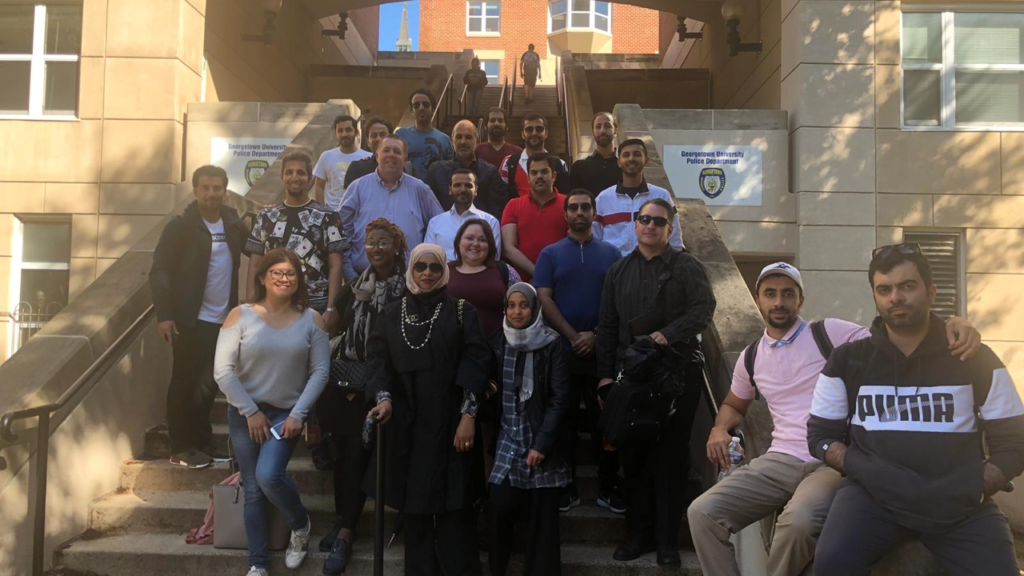In Georgetown University’s Global Master’s Program, Emergency Management Leaders Crisscross the World, Develop New Skills

Recognizing that the world is more interconnected than ever and that today’s emergencies and disasters can be transnational and even global in scope, Georgetown University offers a one-year International Executive Master’s in Emergency & Disaster Management with a focus on the Middle East.
A cohort of students from around the world is participating in the 2018-19 program, which combines executive-level online learning activities with weeklong intensive residencies in five major cities: Washington, D.C., in the United States, where Georgetown was founded in 1789; Muscat, Oman; Paris, France; Amman, Jordan; and Doha, Qatar. This year’s program began in September with a residency in Washington and concludes in August 2019.
The first residency was held Sept 24-29 at the University’s School of Continuing Studies in downtown Washington, a few blocks from the U.S. Capitol and the National Mall.
Designed to shape the next generation of leaders in government, the private sector, and nonprofit organizations, the program assists emergency management leaders in developing the knowledge and tools they need to address a variety of international threats and hazards, both natural and man-made.
“In the [Washington] residency, I also learned about strategic and legal frameworks of regional emergency management organizations, and interagency and international cooperation,” said Farukh Azad, a class member and Manager of Digital Transformation at the telecommunications company Ooredoo in Doha. The class includes other students from the Middle East, as well as Mexico and the United States.
At the conclusion of the program, students will be able to prepare response plans for multiple types of emergencies and disasters and adapt those plans to respond, quickly, ethically, and effectively to changing situations.
The first residency was titled Theory & Regional Collaboration Framework. The others, in order, are Natural & Technological Hazards & Disasters; Terrorism & Man-Made Disasters; Public Health & Humanitarian Crises; and Capstone, which requires students to integrate the knowledge and skills they learned throughout the year to prepare large-scale disaster responses to various scenarios.